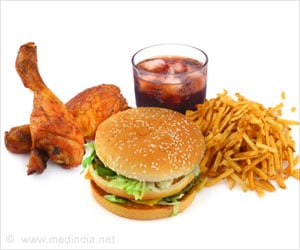
Lately, many US food chains and restaurant have been lining up to banish items perceived as unhealthy or unethical including additive-laden snacks to industrially-farmed meats. Experts see this as a powerful trend.
Penny Kris-Etherton, a professor of nutrition at Penn State University, said, "It's kind of like a whole bunch of things happening, snowballing. Beyond the farmers' markets and organic delis that have long dotted more affluent US neighborhoods, American consumers are being wooed en masse with promises of 'healthful' or 'natural' foods, free of GMOs, additives and nasties."
In September, 2015, McDonald's revealed that it would transition to more humanely produced eggs within 10 years, following a switch to 'real' butter instead of margarine in some dishes. Kellogg plans to banish artificial flavors and colors from its cereals. Mondelez, maker of Ritz crackers and Oreo cookies, set itself a target of 50% so-called 'well-being' snacks by 2020. A bakery chain Panera Bread vowed to excise 150 'unacceptable' ingredients, while Chipotle Mexican Grill said that it was banning antibiotic-raised meats and would use more local produce. Walmart has asked its suppliers to curb the use of antibiotics in meat. Nestle's 'Lean Cuisine' frozen meals are downplaying the 'diet' argument to focus instead on their use of organic ingredients.
Experts said, "The trend crosses the generations, with baby boomers seeking to avert age-associated ills as they live longer, and millennials fixated on health and ecological concerns."
Social media has helped intensify the pressure on the food industry to clean up its act, creating the scope for negative publicity to go viral. Photos of hens stuffed in cages, for example, helped spur passage of a California referendum in 2008 guaranteeing the birds adequate conditions.
Advertisement
Kris-Etherton, who serves on nutrition advisory boards for McDonald's and the American Heart Association, said, "You could take a perfectly 'healthy' option and load up the calories. The key thing is people just have to be knowledgeable."
Advertisement















